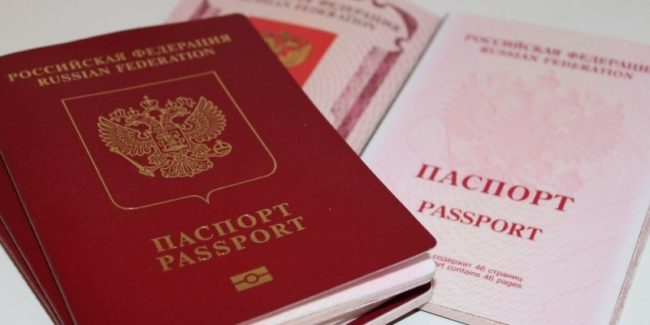Is it possible to send a child to a school other than his place of registration?
It is easier to solve problems if parents are well aware of their rights and legislation in the field of education. In order for a child to be able to attend an educational institution chosen by adults, much depends on what documents and in what order were submitted to the administration.
When the administration rejects a request for admission, most often, parents choose the institution to which the family is registered. Meanwhile, parents have the right to contact a higher organization to receive detailed explanations about the reasons for the refusal.
Life circumstances force you to move to other cities or regions; in this case, the right to free education is not lost, but changing your place of residence requires additional registration measures. Temporary registration is not a reason for refusal of admission, equating rights with those who have permanent registration. The requirement of the law should not be ignored, since the administration of the educational institution will definitely require documents confirming the child’s acceptance for registration at the place of stay or residence.
General rules for enrollment in secondary educational institutions require that the registration address correspond to the territorial distribution of schools. To enroll a child, the administration must verify that the family actually lives within the service area. If it is not possible to resolve the issue of registration on your own, you may consider the option of registering temporarily with your friends and relatives living in the desired area.
The legislative framework
The Education Law contains a clear indication of the acceptance of documents for enrollment of all children who apply to the administration of a particular institution (Article 5 of Law No. 3266-1, adopted in 1992). There is also a ban on refusing to accept a child on racial grounds, or on the basis of place of origin or residence. In Art. 43 of the Russian Constitution states that the right to study free of charge is the inalienable power of every family and every child.
In the process of exercising their right, parents may face a serious obstacle, because they may not be enrolled in a school without registration, and the administration, guided by the provisions of Law No. 310, adopted in 2011, is obliged to provide places for education for children living in the assigned area on a priority basis .
In 2012, new norms were put into effect allowing educators to apply the territorial principle when making admissions. According to clause 4 of Art. 67 of the Law on Education, first-graders living near the school at their place of registration will be accepted first, and those living in other areas will be accepted subject to availability of space. Thus, families living close to the school are included in the “first priority”. The remaining citizens who intend to arrange for their children not according to their registration are included in the “second queue”.
Legislative justifications.
If parents, guided by their desires, have chosen a school other than their registration for their child, and they receive a refusal, they begin to look to see if this is legal.

It is worth reassuring them, the legislation of our country on education (3266-1) states that the school director cannot refuse to enroll a child on the basis of his race, origin, or place of residence.
These rules are duplicated in the Constitution of the Russian Federation (Article 43). It states that any schoolchild has the right to qualify for free and accessible education.
This means that parents can enroll their child in any school. But you need to be aware of the existence of some restrictions.
Thus, Federal Law 310 states that children who live near the school have the right to priority enrollment.
This means that the director may not provide a place in a school without registration only when there are no free places in the classes.
Note! If parents want to enroll their child in a private school, it does not matter where it is located. The child will be accepted for training with a minimum package of documentation.
If the future student does not have Russian citizenship, parents must come to the Education Department. There they will be given a referral to an educational institution.
In this case, the desire of the applicants does not matter; referrals are issued on the basis of availability of places at the school.
How to get your children into school

The procedure for registering a child does not require additional actions on the part of adults - it is enough to submit a pre-collected list of documents to the management of the school or other educational institution.
If the administration’s refusal to admit a student is not related to a lack of places, you should contact the main regulatory body - the Ministry of Education.
When communicating with management, it is recommended to point out all the talents and merits of the ward, achievements in sports, clubs, certificates and awards. When deciding on enrollment, this factor may tilt in favor of the child even if he does not have registration in a certain territory.
According to husband's registration

Circumstances may such that the child is registered separately from the parents. Often, the registration address of the spouses does not match, so the solution to the problem may be to register the second parent if his place of registration is geographically related to the desired school. It is not necessary to obtain a permanent residence permit; to receive documents, it is enough to obtain a temporary residence permit.
Preliminary registration on the eve of submitting documents can increase the chances of a successful resolution of the issue with the school. In this case, the child is placed on the “first priority” list with priority for enrollment. An important nuance should be taken into account that priority applies when admitting first-graders. In higher grades, ratings are allowed to be formed, based on the student’s success, determining the chances of admission.
In another city

Due to the priority rule for children living in a microdistrict allocated to a specific institution, if they are without registration, there is extremely little chance of finding a job. Registration in the desired area of the city will help resolve the issue. If a child can register, the likelihood of acceptance increases significantly.
What to do if the administration refuses
Let's look at a few cases. As we said earlier, the most common situation is a refusal motivated by the lack of available places. But now you know that you have every right to send your child to this educational institution no matter what. If the director refuses to listen to you, then lightly threaten with an application to the Ministry of Education, and then offer him the following options:
- Find a class in another parallel where there are free places (i.e. desks).
- If there are no such classes, the second option involves moving all students to a larger room.
- Sometimes it happens that schoolchildren attend several classrooms. In this case, you should make sure that teachers come to the children, and not vice versa.
If such proposals do not help resolve the conflict (which is unlikely), then the director will at a minimum have to review the lists of students from another district and provide them to you. But it rarely comes to this.
Sometimes school heads refer to other reasons not related to the lack of places in the educational institution. For example, quite often a refusal may be associated with poor performance in a previous school. In this case, the only correct decision for parents would be to contact the municipal education authority, which controls the work of the educational institution. However, before doing this, do not forget to request a written refusal from the school administration with an explanation in two copies. One will remain with the secretary, and the second will be given to you. Then send or take this document to the district education council and within a few days you should receive an answer. If for some reason this does not happen, we advise you to contact a higher authority - the city council. The courts and the prosecutor's office can be considered extreme measures.
Also, directors often ask you to wait and assure that they will definitely find a place for the child in August. But, as practice shows, this never happens and parents, encouraged by promises, are forced to waste their precious time looking for other options.
There is another way to resolve a conflict situation: after a refusal, politely ask for the school charter (a document that every educational institution has by law). It describes all the rights and responsibilities of the administration, teachers, workers and students. But this is not entirely important for us. The main information that should be gleaned from this document is in the “school admission rules” section. Be sure that after studying the paper you will find a lot of useful data for yourself, a link to which will allow you to quickly solve the problem.

Sometimes the school charter can be seen in the hall, but it is better to ask for an official document
They don’t admit you to school with a temporary registration

Permanent living means that the child lives at home for a long period of time and does not plan to move. When documents with temporary registration at the place of residence are provided, this means that the address indicated in the certificate is valid for a short period of time and is limited to a certain period.
When considering a child’s personal file, the school administration may consider that there is a possibility of imminent departure and change of school. Such an opinion can lead to an unreasonable refusal to admit a child, which can be combatted by contacting the education department in a particular locality.
The optimal solution would be to obtain a temporary registration at the location of the school so that the child can easily get into the chosen institution. In the process of resolving the issue of registration, it should be borne in mind that a child can be registered separately from his parents only upon reaching his 14th birthday. At an earlier age, the problem of general registration of the student and one of the parents will have to be solved.
Not accepted into first class

Failure to register can make enrollment difficult at any age. Based on the current principles of education legislation, the administration has the right to refuse admission if the parents have not bothered to obtain registration in advance.
Main reasons for refusal of admission:
- lack of free places in the classroom, sufficient equipment, teaching equipment;
- coercion to give a bribe (practised in schools no less often than in kindergartens).
The main difference when placing a child in first grade is the lack of the opportunity to participate in the rating system. The question of registration at the address territorially assigned to the selected institution is of fundamental importance. If parents intend to enroll a first-grader in a school without registration, admission occurs on a residual basis. Children without registration are admitted to the “second priority”.
To any class upon transfer

If applying to a specific school is caused by moving to a new place with continuing education in another institution, applicants should remember:
- After checking the availability of places, the registration situation will be studied, and if it is not available in the desired area, there is a high risk of refusal.
- Citizens who have moved with their families to another region or town are required to register at their address of residence or stay in order to increase their chances of being accepted.
In addition to checking the correspondence between the registration address and the area served by the school, the administration will study the student’s “track record”, his grades, and other characteristics. The chances of studying at the chosen school are higher if the parent decides to transfer the reward to someone from the administration.
To specialized gymnasiums and lyceums
The general rule of requiring registration applies to all standard situations, with the exception of gymnasiums, lyceums, and specialized educational organizations, where other rules apply. The reason for admission to the gymnasium will be a properly completed package list with an application for admission to the school year.
Schools and gymnasiums consider each candidate, identifying aptitudes and talents for the further development of the minor, subject to availability of places.
Is it possible to get to school without permanent registration at the place of residence?
According to the legislation of the Russian Federation, every resident of Russia has the right to free education , regardless of various reasons. Lack of permanent registration is not a legal basis for refusal to enroll in a school if there are available places.
If a family with a child lives in a populated area, it must have any registration in accordance with RF RF No. 713 of 1995. Therefore, the condition for admission to school is only temporary registration and the availability of a full package of required documents. The basis for enrollment is the legislative norms of the Russian Federation.
Legislative norms guaranteeing the opportunity to obtain an education
- Based on the Constitution of the Russian Federation, you can count on admission to the chosen school, subject to the availability of free places.
- Federal Law “On Education in the Russian Federation” N 273-FZ dated December 29, 2012, as amended in 2020 p. 67, paragraph 3 provides grounds for submitting an application for admission to a school that is territorially assigned to the actual place of residence. The same law allows refusal of admission due to lack of places.
Methods of admission
Let's consider ways of entering a general education institution without registering at the place of residence, if there is no permanent registration in the locality where the school is located. If there is no permanent residence permit in the desired locality, then you can resort to the following options:
- Registration at the place of stay of only the child, if he is over 14 years old, or the child and parents, because Children under 14 years of age can only live with legal representatives.
- Change of permanent residence. Even if there is no registration at all due to the move, but the maximum period (3 months) for registration has not expired, the school must accept the child for education. In the future, you will need to provide a temporary registration document.
- Submitting documents to other schools that have available places. Geographically, they may be remote from their place of residence, but in the future, if circumstances change, the school can be changed.
Bribery is an illegal way to get a coveted place at school. Punishable by law in accordance with Art. 291 of the Criminal Code of the Russian Federation.
Assistance in enrolling in your desired school, subject to availability, can also be provided by:
- Submitted application for enrollment on time (as a rule, they are accepted from July 1).
- A complete package of necessary documents, supplemented by evidence of high achievements in sports competitions, creative and intellectual competitions. Under equal conditions, the owner of the letters will have priority.
- Availability of benefits. It is necessary to prepare in advance a document indicating that the child belongs to the category of beneficiaries (the list is provided by the Department of Education).
- The fact that older children are educated in this school.
A response from the school regarding acceptance or refusal is expected within 7 days. In case of a positive result, you should immediately provide the administration with the originals of all documents, which will help to finally strengthen your position.
How to get to a school without registration in 2020

If the issue of admission is too important, you should not delay solving the problem with registration. To know your rights and obligations, you should first study the statutory documents of the educational institution. The optimal action would be to free the person from the need to register.
If you want to avoid problems with admission to schoolchildren, the rules require contacting the regions and schools where admission to the state is planned by territorial affiliation,
List of required documents

To apply for enrollment, parents collect many documents. The main list includes:
- main document identifying the minor and his parent;
- application for enrollment;
- medical certificate (card with the relevant characteristics of the health, physical and psychological development of children));
- document in form 0-26\У.
You can obtain the required form of certificate of family composition from the passport office, the Criminal Code, and other authorized organizations.










